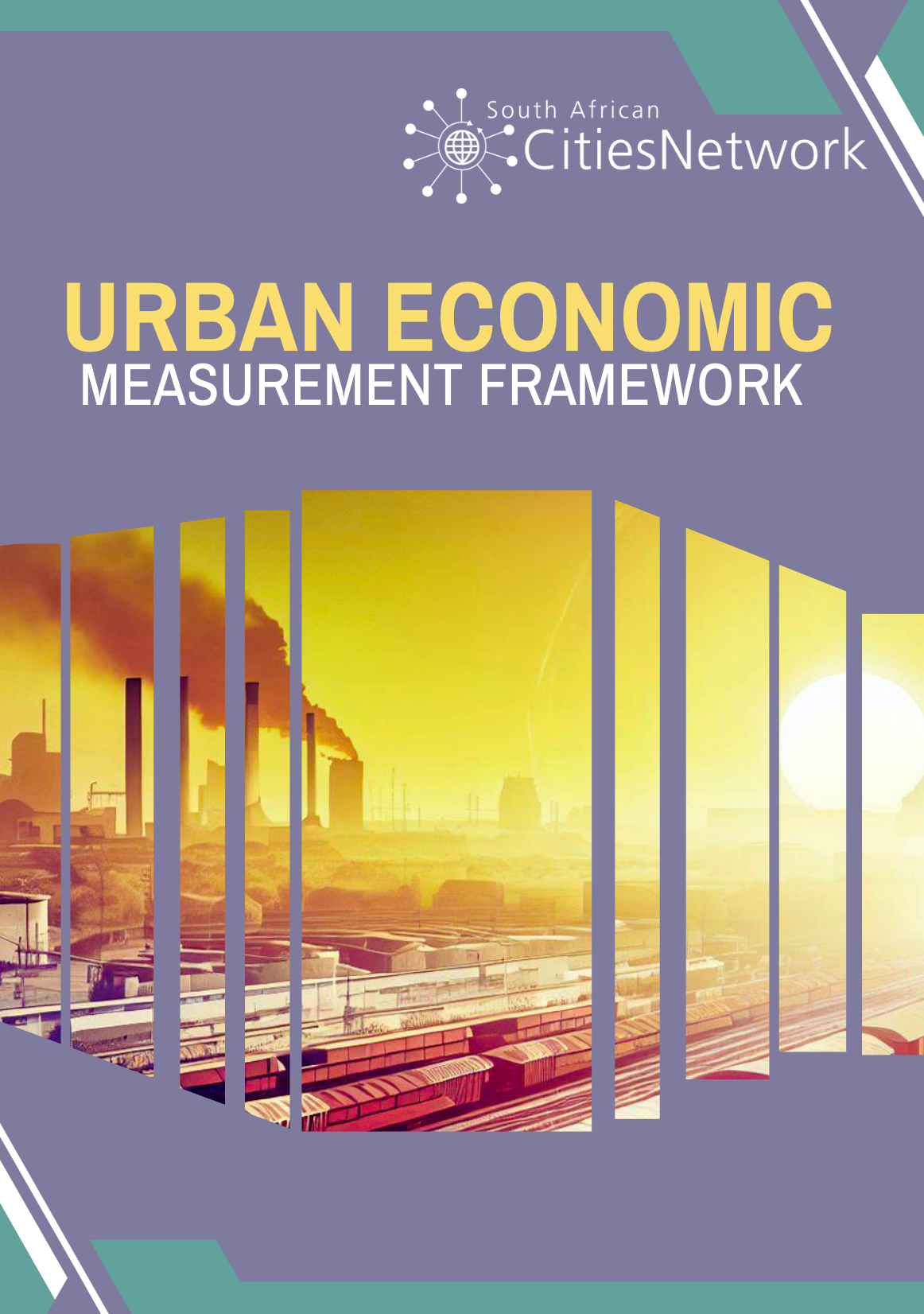Urban Economic Measurement Framework

This investigative research project titled Urban Economic Measurement Framework was initiated to examine the viability of utilising indicators from the Municipal Finance Management Act (MFMA) Circular 88 to establish a framework capable of assessing advancements in economic growth, poverty reduction, job creation, and improved operational landscape for entrepreneurs within South African metros. The study, undertaken for the South African Cities Network's Productive Cities Programme, which supports city governments in fostering inclusive and resilient growth through research and market intelligence, delved into the potential of incorporating MFMA Circular 88 indicators and associated reporting for constructing an outcomes measurement framework. This framework aimed to gauge progress across four interrelated priorities.
South African metropolitan municipalities, constituting 55% of the nation's economy and 52% of employment, play a pivotal role in the country's economic landscape. Over the period from 2011 to 2021, employment within South African metros witnessed a notable increase, outpacing the national figures. The trajectory of South Africa's economic development, job creation, poverty reduction, and entrepreneurial opportunities largely hinges on the performance of urban economies in its metros. Despite their critical role, evidence indicates a variable track record of performance among metros in recent decades. As the availability of administrative, official, and third-party data continues to expand, metros are increasingly equipped to gain insights into the functioning of their city economies. This, in turn, enables them to identify and prioritise interventions more likely to yield significant developmental returns, fostering a more informed and strategic approach to urban economic development.
Abstract based on source.



Comments